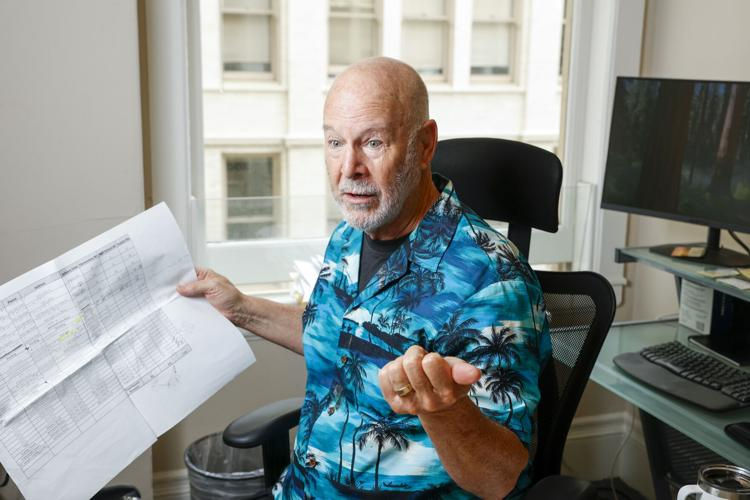Shift to kids’ education puts org where ‘need has never been greater’
- Bay Area Nonprofits

- Aug 11, 2025
- 3 min read

The Market Street nonprofit Urban Angels, long a provider of donated clothing and meals to impoverished, shifted its focus late last year to an area its founder said is no less pressing.
“The need has never been greater for childhood education,” said Nelson Barry III, Urban Angels’ founder and president.
Founded in 2015, Urban Angels is spending the beginning of its second decade in operation providing educational support to unhoused San Francisco elementary-school students and those whose families live at or below the poverty line.
The organization’s initiatives include tutoring, a book-lending program, mentoring for parents to support their children’s education, and frequent fundraising drives. Urban Angels’ most recent fundraiser aims to gather $35,000 to provide 1,000 students with clear backpacks — stocked with school supplies like pencils, glue sticks, highlighters and crayons — before the first day of school.
Originally set to end July 31, organizers extended the fundraiser needing $20,000 to meet the goal. Barry and Urban Angels’ board members committed to match $4,000 in donations, up from an initial pledge of $2,200. Local businesses like the Rainbow Grocery Cooperative have partnered with Urban Angels to hold donation drives of their own as a means of offering further assistance.
“It may just be a backpack to somebody, but it’s not to them. It’s really a gift of hope and dignity,” said Jocelyn Pittel, a board member since 2017. “When you go to school and you don’t have supplies to start your day or start your school year, it’s hard.”
Urban Angels who spoke with The Examiner said that their work has taken on added significance as it and similar organizations deal with local, state and federal budget cuts to education and nonprofit giving. Challenging economic times have led to drops in donations, they added, while also limiting the amount of time that volunteers can devote to their work outside of other additional obligations and responsibilities.
Barry said Urban Angels remains committed to navigating these challenges for the sake of ensuring that The City’s most vulnerable children don’t fall behind academically.
“We decided that we had been giving people a fish, and we needed to teach people how to fish,” Barry said of the shift in focus, which Urban Angels announced in October 2024.

About 90% of the kids supported by Urban Angels are children who are either unhoused or living at or below the poverty level, he said. The federal poverty line for a three-person household is an annual income of $26,650. Thirty percent of the area median income for a family of three in San Francisco is nearly twice that ($52,900), according to the California Department of Housing and Community Development, while anything below $156,650 is considered “low income.” The nonprofit also serves children from homes speaking a language other than English — 43.9% of The City’s households do, according to U.S. Census data — and kids from traditionally underserved communities, Barry said.
Urban Angels launched “Rise Up SF,” a program that supports children’s literacy through private tutoring sessions, in the spring. Rise Up is already involved with 27 shelters across The City, helping children develop their reading skills.
“There are children there that really need this help,” Pittel said. “A lot of them don’t have much.”
Members’ support of young San Franciscans’ learning doesn’t end after supplies are distributed or books are handed out.
Pittel said that she often visits kids and families involved in the nonprofit’s programs to check in on how their academic performances are progressing, as well as listen to tales of the ways in which children’s appetites for learning have grown through the activities and resources provided by the organization.
The nonprofit is cultivating an "excitement of learning” among students, Pittel said. “It’s not just memorization. It’s not just rotary learning.”
“What a gift we give these kids when we do that,” she said. “They’re involved. Their families are involved.”
With almost 11 years of experience under his belt at Urban Angels, Nelson said that he feels like he “was led by an invisible force to be at this place,” growing to view his organization as a funnel directing services to areas where it is needed most.
The City’s response to Urban Angels thus far has made Nelson feel as if he is “in the center of a circle and all this energy is coming towards me,” filled with gratitude from shelters and families supported by the nonprofit, as well as donors who are giving the time and materials to make Urban Angels’ work possible.
“It’s really humbling,” Nelson said. “It makes me stop and really take inventory of what’s important in life.”
Source: San Francisco Examiner

Comments